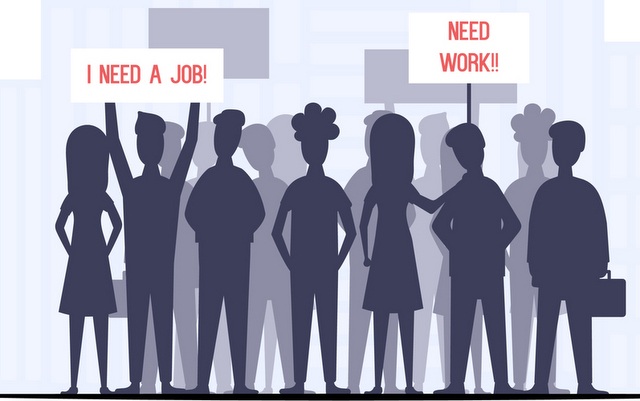[ad_1]
Move these projects forward and get Americans back to work
By Bette Grande
With more than 40 million Americans out of a job due to the coronavirus pandemic, states are scrambling to help the unemployed and laying plans to reopen the economy.
Many of the proposed measures could take time to bring relief. In at least two states, though, governors could get thousands of people back to work right away by removing obstacles to existing energy infrastructure projects. Considering the dire economic forecasts, it would be a shame not to let them move forward.

Back in 2018, regulators in Minnesota approved a plan to replace an aging oil pipeline. Line 3, as it is known, carries crude oil from Alberta to Wisconsin, but because of its condition, operates at only half capacity. Last year, Governor Tim Walz renewed a state appeal to stop the project.
A similar delay is playing out in Michigan, where, in 2018, the state approved agreements to create a tunnel under the Straits of Mackinac, the waterway between Lakes Michigan and Huron. The tunnel is designed to house oil and gas pipelines that now sit unprotected on the bottom of the Straits. Governor Gretchen Whitmer ordered state agencies to halt action on the proposed tunnel last year. A Michigan court reversed her order, but she still faces pressure to block any forward movement on the project.
In both states, environmental concerns have played a role in holding up pipeline upgrades, but they’re not well-founded. When we have less pipeline capacity, more crude oil is transported by train, and according to a recent study from the University of Alberta, greenhouse gas emissions from pipeline transportation are as much as 77 percent lower. Pipelines are also the safest way to move oil, according to the U.S. Department of Transportation.
Enbridge, the company slated to build both the Minnesota and Michigan pipelines, had a safe-delivery record of very close to 100 percent for the decade ending in 2017.
Crucially as we head into a major recession, infrastructure projects offer a slew of economic benefits. Minnesota’s Line 3 replacement would create about 6,500 local jobs over a two-year period, pay some $167 million to local workers and generate another $162 million in purchases at local businesses. In Michigan, Enbridge has committed to spending $500 million on the Straits of Mackinac tunnel, including $40 million right away.
There are also up-and-running examples of the potential economic impact, like Louisiana’s
Bayou Bridge, a pipeline extension completed last year. That project paid $71 million to local landowners, plus nearly $35 million to Louisiana-based companies for materials used in the pipeline’s construction. It also created 2,500 construction jobs.
The Dakota Access pipeline, which was similarly stalled by protestors before it was finally completed in 2017, has been a boon for the North Dakota economy. The project produced some 12,000 jobs for North Dakotans during construction, and within its first two years of operation, the pipeline generated more than $263 million in state tax revenue.
The coronavirus is hammering America’s economy. There’s no need to make things even worse by stalling perfectly safe infrastructure projects.
Bette Grande is President and CEO of the Roughrider Policy Center, a think tank focused on promoting and defending liberty and free enterprise in North Dakota, as well as a research fellow for energy issues at The Heartland Institute. Ms. Grande previously served as a North Dakota state representative from 1996–2014.
[ad_2]
Source link
